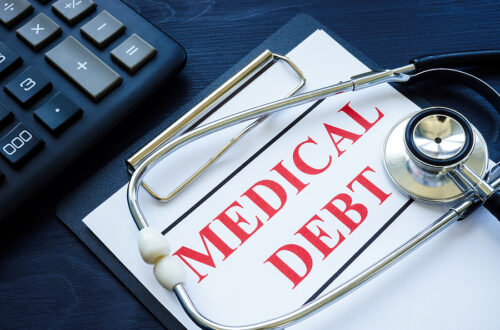The bankruptcy means test determines whether or not you are eligible to file for debt forgiveness through Chapter 7 bankruptcy. The test uses factors such as: income, expenses and family size to determine who can afford to repay their debts through reorganization and who cannot. Most who take the means test, pass it and are considered clear to file Chapter 7 bankruptcy. However, those who are ineligible for Chapter 7 have the option to file Chapter 13, which will restructure and reorganize debts.
How the Test Works
There are two steps involved in determining whether or not you have enough disposable income to pay off your debts. An experienced bankruptcy attorney will assist you in filling out and filing your paperwork with the bankruptcy court. Most debtors who file for Chapter 7 bankruptcy are struggling with consumer debt such as credit card or medical debt.
Step One
The first step in the bankruptcy means test will compare your household income with the average income in your state. In Florida, the median income for a household with one earner is $43,136. The median income for a household with two earners is $53,654. The means test is based on your financial situation over the past six months; therefore you will need to gather all of your documentation about your income during this time period. Keep in mind the court will consider any recent changes in your income such as: losing your job or starting a new job. If your median income over the past six months falls below your state’s average, you automatically qualify to file for Chapter 7 bankruptcy.
Step Two
If you are not automatically qualified to file for Chapter 7 bankruptcy based on your household income, you will need to move on to step two in the bankruptcy means test. As a part of this step, you must gather all of your documentation that lists your “allowable expenses” over the past six months. These expenses can include any of the following: rent, groceries, clothing and medical costs. What is left over is considered disposable income. In this portion of the means test, it is important to be thorough and not leave out any “allowable expenses.” It is also crucial to know your local “allowable expense” standards in addition to national standards. Make sure you consult with your attorney to fully understand what are considered allowable expenses in Florida.
Click here to read more on this story.
If you are in financial crisis and considering filing for bankruptcy, contact an experienced Miami bankruptcy attorney who can advise you of all of your options. As an experienced CPA as well as a proven bankruptcy lawyer, Timothy Kingcade knows how to help clients take full advantage of the bankruptcy laws to protect their assets and get successful results. Since 1996 Kingcade & Garcia, P.A. has been helping people from all walks of life build a better tomorrow. Our attorneys’ help thousands of people every year take advantage of their rights under bankruptcy protection to restart, rebuild and recover. The day you hire our firm, we will contact your creditors to stop the harassment. You can also find useful consumer information on the Kingcade & Garcia website at www.miamibankruptcy.com.

